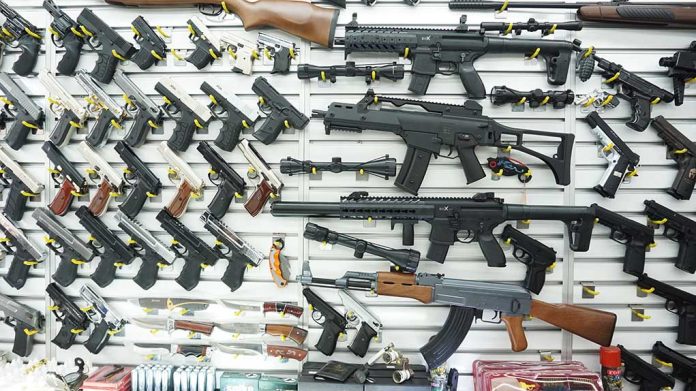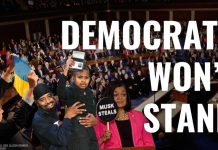
Trump’s Justice Department strikes down Biden’s “zero tolerance” gun policy that shuttered hundreds of legal gun stores across America for minor paperwork errors, marking a significant victory for Second Amendment rights.
Key Takeaways
- The Trump administration has officially ended Biden’s “zero tolerance” gun policy that targeted federally licensed firearm dealers for minor clerical errors.
- Under Biden’s policy, gun store closures reached a 16-year high with over 300 law-abiding FFL holders subjected to raids and investigations.
- Many business owners lost their livelihoods due to license revocations for trivial paperwork violations.
- The Justice Department under Harmeet Dhillon is now framing the Second Amendment as a fundamental civil right, investigating potential constitutional violations by local agencies.
Reversal of Biden’s Anti-Gun Agenda
The Department of Justice under President Trump has taken decisive action to protect Second Amendment rights by rescinding the Biden administration’s controversial “zero tolerance” policy that targeted gun store owners. This policy, which had been weaponized against federally licensed firearm dealers, resulted in hundreds of businesses being shuttered for minor paperwork infractions rather than substantial violations. The reversal represents a significant shift in federal approach to gun rights, prioritizing constitutional protections over bureaucratic enforcement that effectively functioned as backdoor gun control.
“For years, the Zero Tolerance Policy has been a tool of political retribution—targeting gun stores and Americans who were simply trying to exercise their rights,” said Gun Owners of America (GOA) Senior Vice President Erich Pratt. “We applaud President Trump, Attorney General Bondi, and Director Kash Patel for listening to gun owners and taking action to repeal this abusive policy. This is what pro-gun leadership looks like.”
Devastating Impact on Business Owners
The statistics reveal the severity of Biden’s crackdown on legal gun dealers. License revocations reached a 16-year high under the previous administration’s directive, with over 300 FFL holders subjected to investigations and raids. These actions weren’t targeting illegal gun trafficking operations or violent criminals, but rather small business owners who may have made minor clerical errors in their extensive required documentation. The real-world consequences devastated families who depended on these businesses for their livelihoods.
“This was an attack on the Second Amendment through the back door,” he said. “My wife and I, this was our sole income, and it’s not anymore,” said J.C. Harrison, Tennessee gun store owner.
The human cost of the policy was particularly evident in cases like Harrison’s, where families lost their primary source of income not because they were engaged in illegal activities, but because of technical violations that could have been addressed through compliance assistance rather than immediate license revocation. The policy effectively exploited the Bureau of Alcohol, Tobacco, Firearms and Explosives (ATF) as a mechanism for implementing gun control policies that couldn’t gain traction through legislative channels.
Reframing Gun Rights as Civil Rights
One of the most significant aspects of the Trump administration’s approach is the repositioning of Second Amendment protections within the framework of civil rights. Harmeet Dhillon of the Civil Rights Division is spearheading this effort, launching investigations into local agencies that may be violating constitutional rights through unnecessary delays or obstacles to lawful gun ownership. This includes an investigation into the Los Angeles County Sheriff’s Department over potential violations related to concealed carry permit delays.
“The Second Amendment is one of the constitutional rights we are committed to defending,” Dhillon said. “We’re adding that to our analysis where states are violating constitutional rights,” said Harmeet Dhillon, Civil Rights Division.
This shift in perspective reflects the administration’s comprehensive approach to defending constitutional rights. Beyond ending the “zero tolerance” policy, the Trump administration has also abolished the White House Office of Gun Violence Prevention, which many Second Amendment advocates viewed as another mechanism for restricting gun rights. With these changes, federally licensed firearm dealers can now operate their businesses without the constant fear of losing their livelihoods over minor paperwork errors that have no bearing on public safety.







